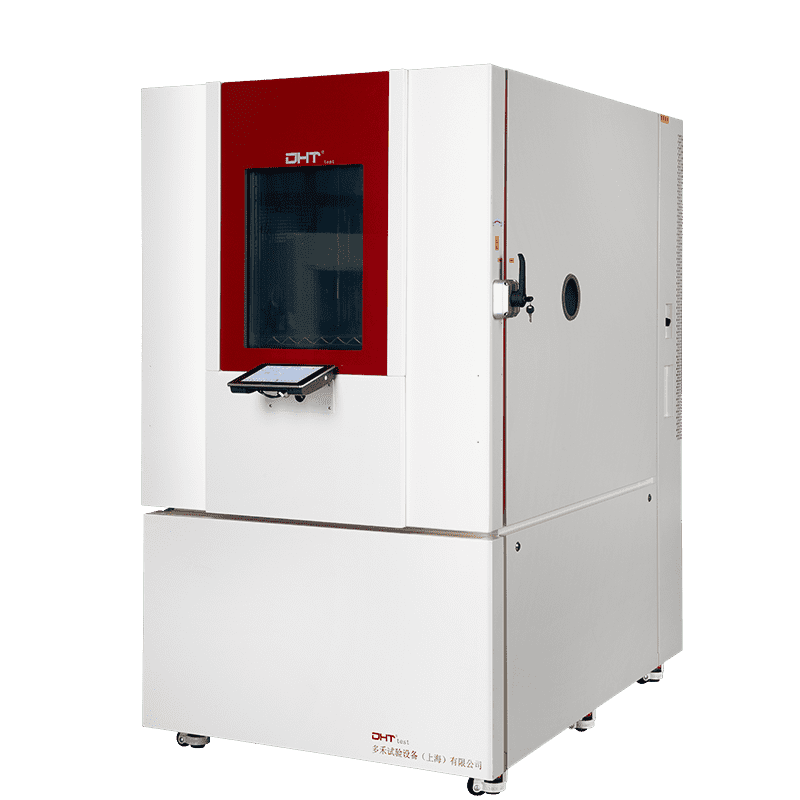Written by Shirley
Product Manager, Doaho Test (DHT®)
In the arena of advanced manufacturing, every sudden temperature shift a product endures is a stringent test of its resilience. Whether it’s a spacecraft re-entering the atmosphere, a new energy vehicle facing extreme polar cold, or a semiconductor chip withstanding intense heat from data centers — the rapid temperature change test chamber acts as the “forging furnace” for these extreme survival trials.
By rapidly cycling between high and low temperatures within minutes, this equipment compresses years of natural material evolution into a fraction of time. From thermal fatigue testing of aerospace titanium alloys to thermal shock verification of photovoltaic inverters, these chambers quietly set new standards for industrial reliability.
Yet, when confronted with numerous seemingly similar “metal boxes” on the market, you might wonder:
-
Can the advertised -70°C to 150°C temperature swing within 10 minutes really be consistently achieved?
-
Will the device maintain accuracy after 20,000 test cycles?
-
Can you count on technical support with an 8-hour response time when unexpected issues arise?
Choosing a manufacturer is essentially about selecting a “partner” to safeguard your R&D journey for the next decade. This article will guide you through core evaluation criteria, key parameter identification, verification of technical capabilities, and after-sales support considerations to help you make an informed choice.
Does the Manufacturer Have Professional R&D and Production Capabilities?
A rapid temperature change test chamber is far more than a simple heating-and-cooling device. Its core technology lies in achieving large temperature swings within extremely short timeframes, while ensuring precise control and stable operation throughout the test.
Compared to standard temperature chambers, rapid change units face higher technical barriers in areas such as temperature ramp rate control, thermal load response, structural integrity of the chamber, switching logic between heat and cooling sources, and refrigeration system efficiency.
In other words, a manufacturer with only assembly capabilities but lacking system development experience is unlikely to guarantee long-term stability under demanding operating conditions.
When assessing a manufacturer’s R&D strength, consider these key points:
-
Do they independently develop their temperature control systems, including PID algorithm optimization and integration of PLC with touchscreen interfaces?
-
Have they developed proprietary refrigeration system matching technologies that customize compressor configurations and throttling solutions based on required ramp rates?
-
Can they integrate electrical control systems with multiple operation modes, remote communication interfaces, and safety interlocks?
-
Do they operate their own testing labs capable of multi-cycle, multi-load simulations for durability testing and calibration?
-
Do they have proven experience serving aerospace components, EV battery packs, MEMS sensors, or similar high-demand industries?
Manufacturers with true “end-to-end” design capabilities don’t just sell equipment — they understand your industry’s unique testing challenges and deliver practical, optimized solutions. Their products tend to be mature, application-focused, and of lasting value.
Are the Product Performance Parameters Authentic and Stable?
Core quality indicators to evaluate include:
-
Temperature Ramp Rate: Common specs start at ≥5°C/min or 10°C/min, with some high-end models reaching 15°C/min or even 20°C/min (under no-load conditions). A manufacturer’s true strength shows if they can maintain stable ramp rates under full or partial load.
-
Temperature Range: Typical ranges span –70°C to +180°C; select based on your application needs.
-
Temperature Uniformity and Fluctuation: High-quality chambers control variation within ±1.5°C to ensure uniform heating across test samples.
-
Refrigeration System: Compressor brands (e.g., Bitzer, Tecumseh, Copeland), condenser arrangement, and expansion valve control logic directly affect ramp efficiency and equipment longevity.
-
Control System: Look for closed-loop PID + PLC logic control supporting remote monitoring, data export, and automatic alarms.
During selection, request third-party test reports or real measurement data from manufacturers and arrange on-site inspection of sample machines to avoid exaggerated specs or inferior builds.
Does the Manufacturer Have Industry Experience and Technical Depth?
Choosing a rapid temperature change chamber is more than just comparing specs. A truly reliable manufacturer has hands-on experience with your industry’s testing scenarios.
Experienced vendors understand the logic behind the tests: which thermal stress points are most sensitive? What critical standards govern ramp rates and temperature stability? Should the chamber design accommodate special test ports or sensor placements? These details cannot be addressed by a one-size-fits-all approach.
Check if they have:
-
Participated in aerospace thermal shock or cycling tests for sensitive components such as satellite electronics or flight control modules.
-
Delivered temperature cycling solutions for new energy vehicle batteries, electric drive systems, or thermal management modules, with optimized chamber structures and airflow paths for large heat sources.
-
Supplied customized aging test chambers for semiconductor chips, MEMS devices, including specialized interface adaptations, atmosphere control, and proven long-term stability.
A seasoned manufacturer is not just a device supplier but a partner offering tailored testing solutions that evolve with your industry’s needs, providing practical recommendations on structure, sample holders, and thermal load simulation.
Are Service Response Speed and After-Sales Support Reliable?
Environmental test equipment is precision instrumentation; any downtime can disrupt product validation schedules or delivery timelines. Therefore, a robust after-sales service network is essential.
Pay attention to:
-
Commitment to respond within 24 hours.
-
Presence of local or nearby technical support teams.
-
Availability of annual maintenance and inspection plans.
-
Support for remote diagnostics and software updates.
Additionally, comprehensive operator training and well-documented technical materials reflect a manufacturer’s professionalism and customer-centric approach.
Is Pricing Reasonable and Transparent? What About Cost Performance?
Rapid temperature change test chambers are sophisticated, high-value instruments. Avoid focusing solely on the lowest price, as seemingly cheap equipment often conceals serious quality compromises:
-
Ramp rates failing to meet claimed specs, undermining test reliability.
-
Use of inferior compressors leading to frequent breakdowns and costly downtime.
-
Poor welding quality causing inadequate sealing and unstable temperature control.
-
Unstable control systems prone to crashes or false alarms, disrupting operations.
Instead, evaluate price alongside multiple factors: hardware configuration, actual performance, maintenance intervals, failure rates, after-sales service quality, and energy consumption.
Only through comprehensive assessment can you identify equipment that delivers true cost-effectiveness, ensuring stable performance and long-term savings.
Conclusion
Rapid temperature change test chambers represent high-end environmental test equipment, reflecting a manufacturer’s craftsmanship, systems integration, and service capabilities.
When selecting a vendor, move beyond the traditional “brand and price” mindset. Instead, holistically assess their technical strength, application experience, support systems, configuration options, and reputation.
A trustworthy manufacturer not only supplies quality equipment but also provides ongoing technical support throughout the product lifecycle — helping you maximize testing efficiency while minimizing quality risks.
If you are seeking high-performance, highly reliable rapid temperature change test chambers, consider exploring the DHT® product line. With years of focused expertise in environmental testing, DHT® combines innovation and service excellence to deliver solutions tailored for superior adaptability, efficiency, and value.


